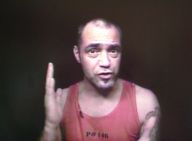Reality and artifice
There is no doubt that the behaviour of participants in our study was affected by the knowledge that they were being filmed. In particular, it was a factor in the unwillingness of some Guards to impose discipline at the start of the study.
This implies that the willingness of powerful authorities to be tyrannical can be reduced by rendering them visible and accountable in particular ways. This is an important finding. It shows that we need to consider the impact of surveillance both in everyday life and in our theories of behaviour.
Moreover, it is wrong to reduce the significance of surveillance simply to participants’ concerns about the television audience. Their awareness of the cameras declined over time and, if anything, observational evidence suggests that they were most concerned about being watched by us, the experimenters.
The notion of ‘playing up to the cameras’ is also too simplistic to explain the full pattern of our findings. Most obviously, since the cameras were a constant, they cannot account for predicted variations in behaviour over time. And while it may be possible for people to fake some things for the camera, it is much harder to fake responses on psychometric and physiological tests.
The fact that all our different form of data tell the same story convinces us that the study’s findings were real rather than in any sense artificial.
